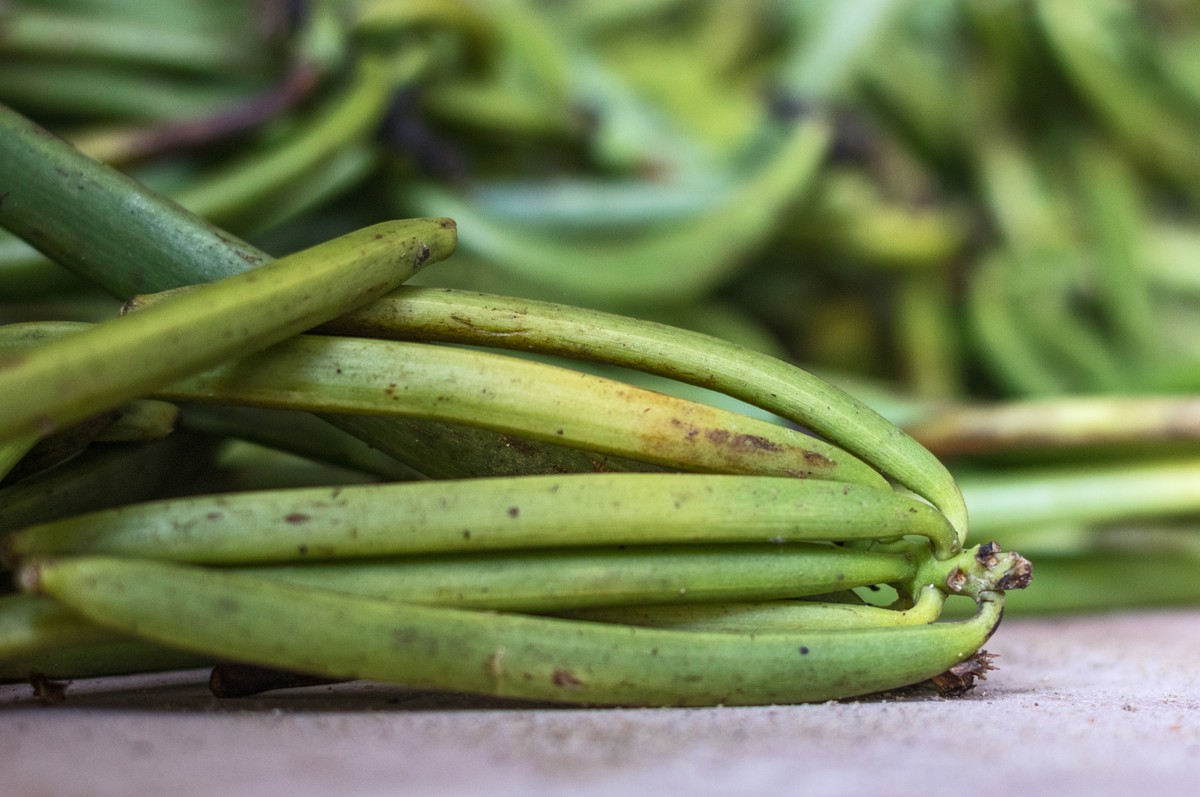Did you ever wonder where the vanilla flavoring your favorite foods and perfumes comes from? 4 out of 5 chance it’s from Madagascar. This may seem a paradox knowing that vanilla is the second most-expensive spice after saffron, and Madagascar one of the poorest countries in the world. Although Madagascan farmers call vanilla the “green gold”, they are locked in a poverty cycle fueled by a chronic crisis in the sector, which also affects industry players.
On the one hand, vanilla farmers are in a poverty trap – they lack efficient practices and finance to grow high quality vanilla, nor can they plan ahead to sell cured vanilla. As a result, the farmers get a low price for poor quality vanilla, reinforcing the poverty cycle. On the other hand, vanilla prices have been subject to severe volatility due to a lack of cash flow pushing farmers into harvesting their vanilla too early, leading to poor quality in the market. Supply shortages of quality vanilla also cause speculation and increase the risk of theft from farmers. Moreover, extreme weather events, most recently cyclone Enawo in March this year, can decimate the vanilla crop and add further stress to an already fragile system.
The Livelihoods Fund for Family Farming, an impact investment fund created by Danone, Firmenich, Mars and Veolia to foster sustainability and poverty reduction in supply chains, is investing in a large-scale vanilla project with an innovative model where farmers and industry players share both benefits and risks. This project, with 3,000 family farms, aims to tackle not only quality and traceable vanilla production but also food security for farmers and biodiversity conservation. Prova, a supplier to Mars, is a partner in the project. The latter will be implemented by Fanamby, a Madagascan NGO with extensive experience working with vanilla producers.
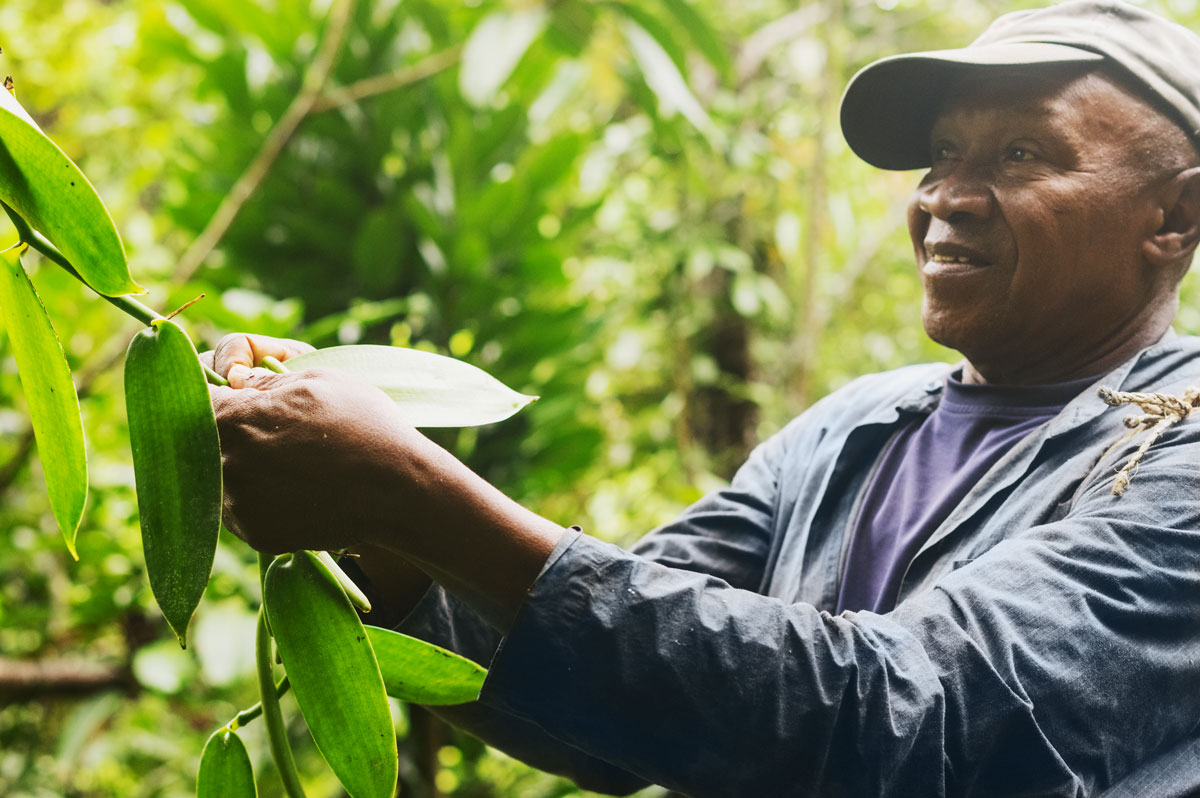
An innovative investment model
Danone, Firmenich and Mars, investors in the Livelihoods Fund for Family Farming, purchase significant volumes of vanilla. They have joined forces with Prova, a supplier to Mars, to scale-up an innovative model. Moreover, they are collaborating with local authorities and NGOs to build an integrated project going beyond vanilla production. Fanamby, a Madagascan NGO has already developed efficient solutions with vanilla farmers, namely by empowering them with sustainable farming practices and strengthening farmers’ cooperatives. It is in charge of the project implementation and monitoring.
All partners in the Livelihoods-Vanilla project have committed to the project over a 10-year span. The Livelihoods Fund for Family Farming bears the upfront financial risk by providing € 2 million to Fanamby and farmers for project implementation related to sustainable vanilla project production. Danone, Firmenich, Mars and Prova will purchase vanilla produced within the project. The Livelihoods Fund will be gradually refunded through a result-based fee paid by the four companies which buy the vanilla and benefit from the project. Project monitoring and evaluation will be carried out through a shared governance with all stakeholders. This innovative impact investment model is raising interest among public organizations and discussions are taking place between the Livelihoods Fund for Family Farming and development agencies in order to tackle the food security and the conservation components of the project in 2018.
Building on a new recipe
To overcome the deeply-rooted problems hindering the vanilla sector in Madagascar, partners of the Livelihoods-Vanilla project have chosen to work outside of the Sava region. As the bulk of vanilla is produced in the Sava region, the market is immediately undermined when cyclones or droughts affect the area. A new production zone will offer more resilience to companies and contribute to revitalize isolated villages.
Vanilla was once produced in the project area. Farmers quit when prices were at the lowest as they were the most impacted due to their remote location. Vanilla production within a strong organization and value chain therefore offers the farmers long-term economic prospects to improve their living conditions.
In addition, the Livelihoods-Vanilla project will tackle green vanilla thefts, which is rising at an alarming rate and generating major issues in local communities, by associating the youth and local authorities. Young people, often involved in thefts due to lack of revenues, will be offered job opportunities in vanilla nurseries, logistics and curing process. At the same time, local authorities will work on theft prevention and make sure the legal frame for vanilla harvesting, selling and transformation is respected by farmers.
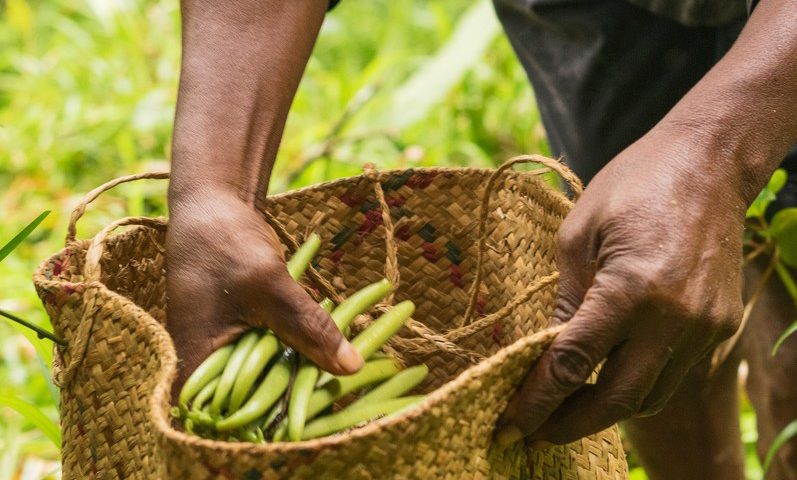
Farmers become their own boss
Although vanilla’s price has soared to head spinning levels, most farmers get a very little share of it (from 5% to 20%). Most of the value goes to middlemen and in the curing process (transformation of green vanilla pods into brown vanilla- Learn more). With the Livelihoods-vanilla project, farmers will be given the means to become the main players of the value chain.
A newly created farmer-owned cooperative, structured with Fanamby’s support, will seek to connect producers more directly to markets, and will collect the vanilla, cure it and export it to the project partners. Through this work, it’s estimated that around 60% of cured vanilla’s value will go back to farmers (the rest being for the transformation process).
Farmers in the project will be trained over five years on sustainable practices to increase vanilla productivity and quality through agroforestry techniques. They will also receive planting material and extension services to strengthen their farms. Thanks to more productivity and a secured market, farmers revenues within the project are expected to triple.
As a result a significant production of pre-crisis quality and fully traceable vanilla is expected over the ten-year span of the project. Farmers’ empowerment, a transparent value chain from field to market and secured sales for farmers will limit speculative behaviors as both farmers and buyers will have long-term visibility.
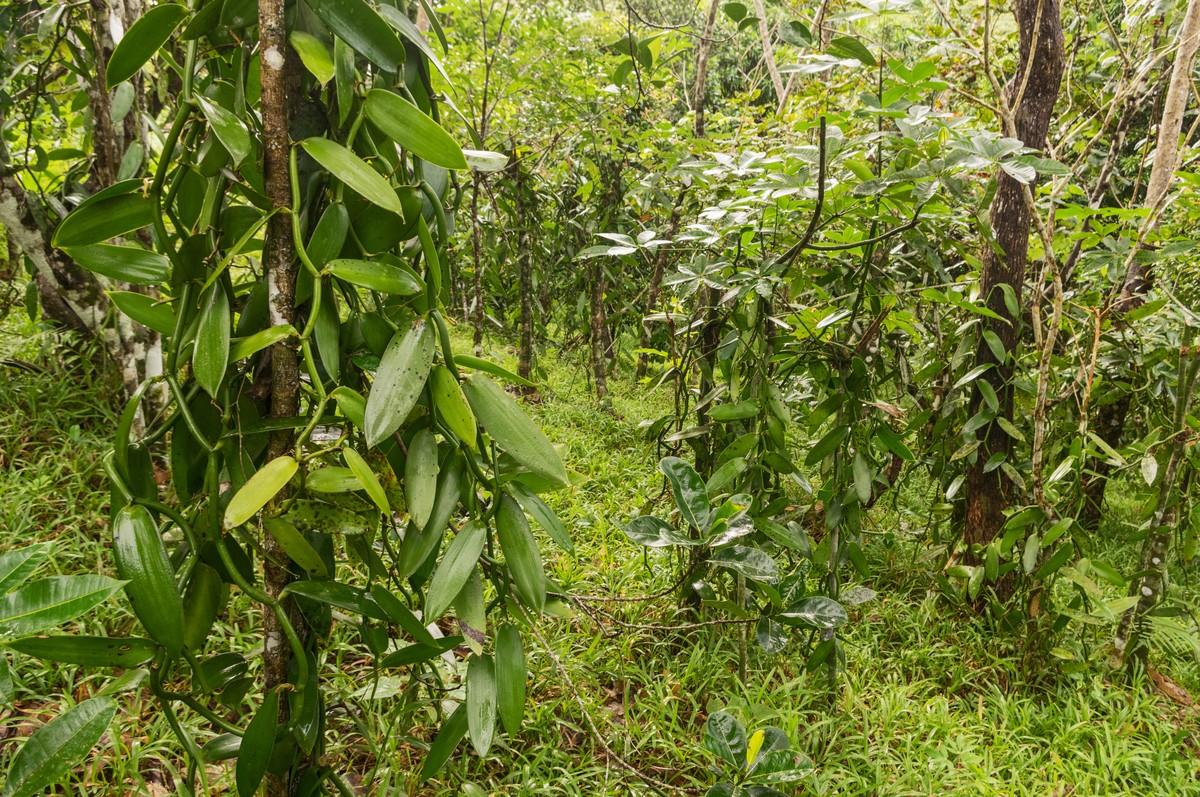
Vanilla produced through agroforestry techniques.
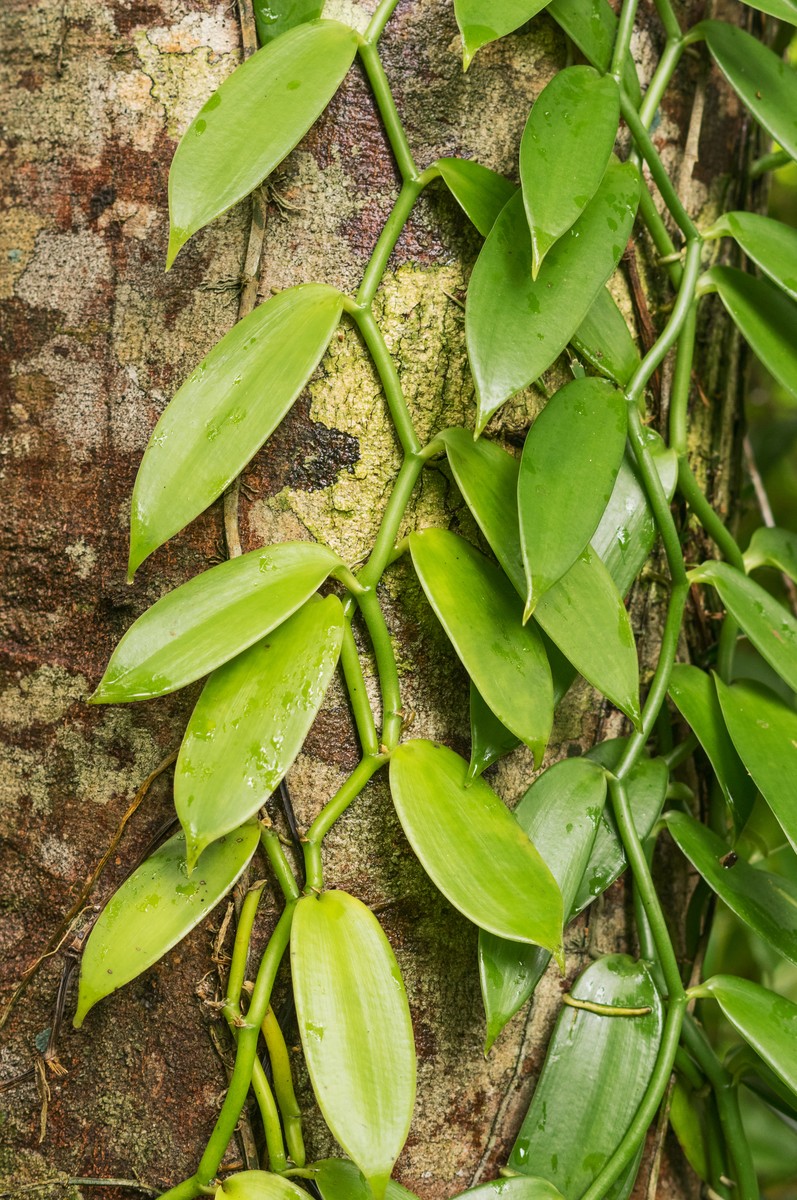
Healthy farmers & environment for tasty vanilla
Madagascar holds the world’s fourth highest rate of chronic malnutrition[1]. Not enough rice, the island’s main crop, is produced to satisfy demand. The project will therefore focus on rice production as well as crop diversification for a more balanced daily food intake for farmers and their families.
Through the Livelihoods-Vanilla project, around 6,000 ha will be transitioned to sustainable farming practices with agroforestry for vanilla and food production. Moreover, the project will contribute to protect a unique tropical forest nearby the project zone. It shelters indigenous species of Madagascar which can only be found in this area. Illegal logging and slash-and-burn practices are jeopardizing this forest as farmers seek for revenues. The Livelihoods-Vanilla project will offer them alternative economic opportunities, like clove production and poultry farming, to preserve this landscape.
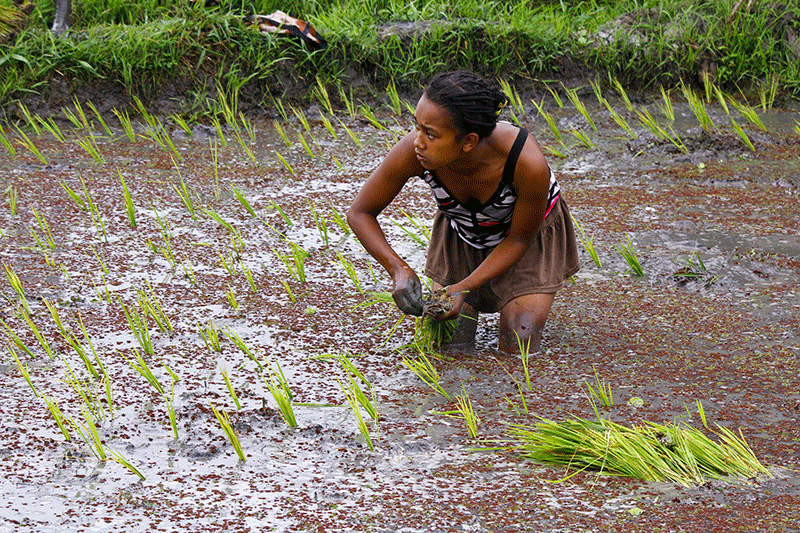
New projects will be launched in the coming months by the Livelihoods Funds, that link farmers’ empowerment, environmental conservation and sustainable sourcing for companies.
Read also:
An NGO and a private company share their views on the Livelihoods-Vanilla project in Madagascar
An interview of Serge Rajaobelina, CEO of Fanamby, and Dominique Roques, Vice-President Naturals M&A, Development & Promotion for Firmenich.
Read the interviewVanilla from field to market: patience & precision
From the time green vanilla is harvested, around 6 months are necessary to prepare it for markets.
Learn more[1] http://www1.wfp.org/countries/madagascar
Photos: Mika Andrianoelison; Firmenich; dr322; Unclesam.




